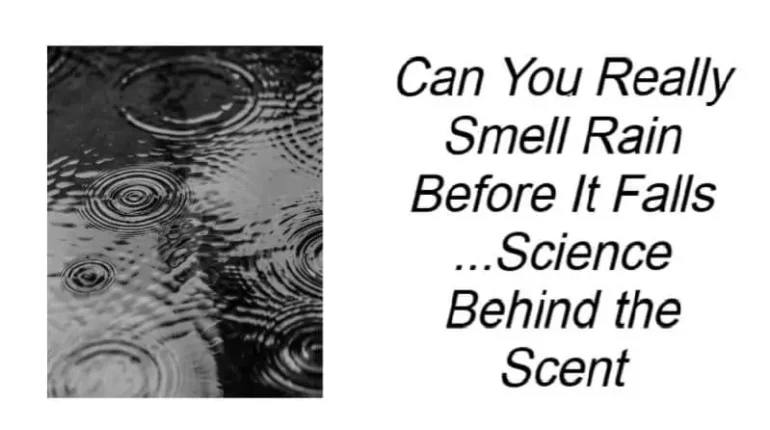📌 Can You Really Smell Rain Before It Falls? The Science Behind the Mysterious Earthy Scent

Posted 22 November 2025 by: Admin
Long before the first raindrop falls, many people sense a familiar earthy aroma—an invisible signal carried on the wind that feels both scientific and strangely nostalgic.
Can You Really Smell Rain Before It Falls …Science Behind the Scent
The belief that people can detect the scent of rain before it begins blends scientific explanation with sensory awareness and cultural tradition. Many individuals claim they notice a distinct, earthy smell just before a storm approaches. But is this truly possible, or simply a widespread myth? Here’s the science behind this intriguing phenomenon—and whether some people can genuinely sense rain before it starts.
Understanding the Science Behind Rain’s Scent
The well-known aroma linked to rainfall doesn’t come from the raindrops themselves, but from how they interact with the environment. When raindrops strike the ground, they release a mix of compounds from soil, plants, and the atmosphere. These airborne particles create the recognizable scent many associate with rain on the way.
Petrichor: The Earthy Smell After Rain
One of the main contributors to rain’s scent is petrichor, a term introduced by Australian scientists in the 1960s. Petrichor describes the earthy smell that appears when rain falls onto dry land. It’s primarily caused by:
- Oils secreted by plants during periods of dryness.
- Geosmin, a compound released by soil-dwelling bacteria.
When rainfall hits the surface, these compounds are dispersed into the air, producing the distinct scent many people recognize immediately.
How Humans Sense Weather Changes
Humans are surprisingly skilled at detecting subtle environmental changes, including those linked to approaching weather shifts. Our sense of smell can pick up faint chemical signals carried on rising humidity and shifting air pressure. As a storm nears, these factors can increase the release of scent compounds, making them easier for some individuals to detect.
The Psychological Side of Smelling Rain
Detecting the scent of rain isn’t solely based on biology—it also has a psychological dimension. Memories, emotions, and personal associations with rainfall can heighten awareness of these scents. Even anticipating an incoming storm can sharpen our senses, making us more likely to notice the smell when it’s present.
Is It a Universal Experience?
Not everyone can sense rain before it begins. The ability varies widely among individuals and is influenced by factors such as:
- Genetic differences in olfactory receptors.
- Personal memories and associations with the scent.
- Environmental conditions, including soil dryness.
Some people are naturally more responsive to geosmin and similar compounds, while others may not detect them at all.
What the Science Says
Scientific research supports the idea that the smell of rain is real and chemically identifiable. Studies have identified geosmin and various volatile organic compounds (VOCs) as the primary contributors. These findings also show that sensitivity to these smells varies significantly, confirming that the ability to smell rain isn’t universal.
Culture and Anecdotes: A Deeper Connection
Stories and cultural traditions about “smelling rain” stretch back centuries. In many cultures, this ability symbolizes being deeply connected to nature. Some people experience it as comforting and almost magical, while others view it with skepticism. Regardless, these accounts reflect a profound human relationship with the natural world.
Conclusion: Can You Really Smell Rain?
Yes—smelling rain is a real, scientifically supported phenomenon. The scent comes from compounds released when rain meets dry soil and organic matter. However, not everyone notices it the same way. Biology, memory, and cultural context all influence how—and whether—we perceive the scent of approaching rain.
For those who do detect it, the experience serves as a vivid reminder of how closely our senses are intertwined with the rhythms of nature.




















